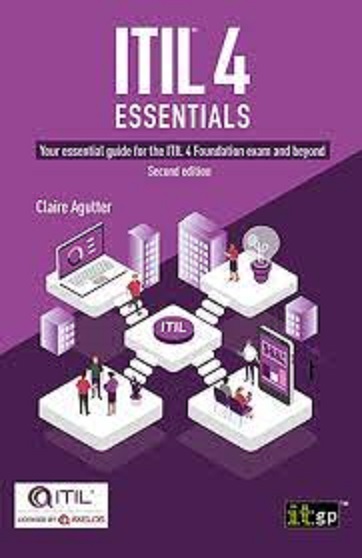The 7 Guiding Principles of ITIL 4: Keep it simple and practical
The 7 Guiding Principles of ITIL 4: Keep it simple and practical
The seven Guiding Principles of ITIL 4 are the most important statements in the ITIL framework. They are intended to influence choices and actions so that those who are responsible for managing and executing the organization’s service portfolio may benefit from these high-level best practices at the individual and organizational levels.
- Concentrate on the positive aspects of the situation.
- Begin with where you are.
- Iterative progress is made in response to input.
- Collaboration and promotion of visibility are essential.
- Think and act in a holistic manner.
- Maintain a straightforward and realistic approach.
- Optimize and automate your processes.
These aren’t fresh ideas or concepts. They are inspired by concepts that originated in disciplines other than service management (such as manufacturing and software development), but which have now been validated in the context of service management itself.
Keep things basic and practical: that is the topic of today’s post.
-
Maintain a straightforward and realistic approach.
This approach, like the emphasis on value, is mainly geared at preventing waste from occurring. Waste is inversely proportional to complexity. Higher system complexity indicates that there are more possibilities for waste to infiltrate the system—and that it takes more effort to identify and eradicate waste from the system.
Concentrate on achieving the intended result rather than on developing the most beautiful and complex solution. Ensure that you are not over-processing by doing the bare minimum number of steps to get your desired result (delivering quality above and beyond what is required).
Rather than attempting to meet every potential exception, use the Pareto Principle (also known as the 80:20 rule) to satisfy mainstream demand instead. A straightforward approach will be able to deal with 80 percent of the variance. It will only complicate the process and delay it down for the 80 percent of the population if choices and actions are taken to favor non-mainstream demands (the outliers).
It is preferable to apply general exception handling, for example, mainstream demand is handled by a simple, standardized procedure (which may be automated)—and the less frequent outliers are handled on a case-by-case basis—than it is to apply specific exception handling.

-
Value focus
Everything the company does should provide value to itself, its customers, and other stakeholders. The first step in concentrating on value is to identify the customers and key stakeholders. Next, it is critical to comprehend what customer value is. Finally, understanding the customer’s experience with the service and the company as a whole is crucial (UX). CX is defined as the sum of a customer’s interactions with a business and its goods.
-
Begin here
When looking to ITIL DPI Training to enhance anything, it is not essential or advisable to start from scratch, since this might squander time, money, and the potential to utilize what already exists. Don’t start from scratch without considering what’s currently accessible.
-
Iterate with feedback
Refrain from doing everything at once. The concentration on each attempt will be sharper and simpler to sustain if work is organized into smaller, manageable chunks (iterations). In order to maintain the emphasis on value, the overall initiative as well as its component iterations must be regularly re-evaluated and may be updated. Ensuring actions are focused and suitable in changing conditions requires input before, during, and after each cycle. Reactions may be examined to discover problem areas and potential solutions.
-
Collaborate and raise awareness
Having the appropriate people in the proper jobs increases buy-in, relevance (better information for decision-making), and long-term success. Inclusion is preferable to exclusion (silo activity) because unexpected sources may provide unique ideas, passionate participation, and vital viewpoints. Collaboration involves knowledge, understanding, and trust by Sprintzeal.
-
Focus on the whole
There is no such thing as an island. The organization’s outputs to itself, clients, and other stakeholders would suffer if it does not manage its operations holistically rather than piecemeal.
-
Keep it basic and useful
Always employ the fewest steps possible to achieve a goal. Practical solutions should be developed using outcome-based thinking. If a process, service, activity, or statistic doesn’t provide value, get rid of it. Trying to cover all bases frequently leads to over-complication. Instead, universal exception handling rules should be defined.
-
Improve and automate
Organizations must optimize the value of their people and technical resources’ work. Technology may help firms scale up and automate routine operations, freeing up human resources for more complicated decisions. New cognitive technologies are expanding these possibilities. Automation for automation’s sake might raise expenses and weaken organizational robustness and resilience.

